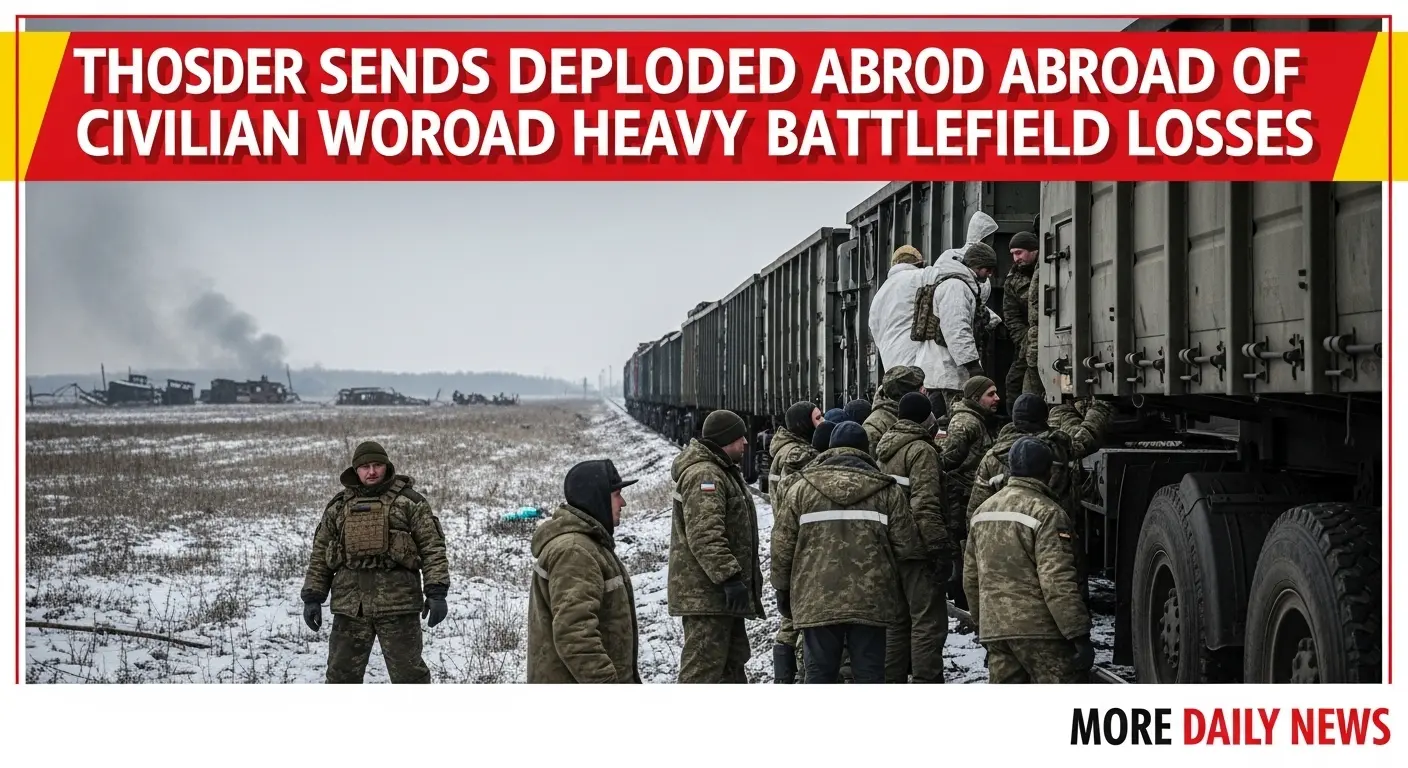Table of Contents
North Korea will deploy 6,000 military personnel to Russia’s conflict zones, including 1,000 specialized deminers and 5,000 military construction workers, according to Russian Security Council Secretary Sergei Shoigu. This new contingent follows earlier deployments where approximately 6,000 North Korean troops suffered casualties fighting alongside Russian forces in Ukraine’s border regions. The workers will focus on mine clearance and rebuilding infrastructure in war-devastated areas like Kursk, where Ukrainian forces made significant territorial gains in 2024. The deployment was finalized during Sergei Shoigu’s third meeting with Kim Jong Un in Pyongyang within three months, signaling accelerated military cooperation between the two sanctioned nations. Shoigu announced the workers would provide “fraternal assistance” for reconstruction in Russia’s Kursk region, which suffered extensive damage during Ukraine’s cross-border offensive in August 2024. The Russian official stated personnel would begin work “in the near future” after completing demining operations. This agreement extends the Comprehensive Strategic Partnership Treaty signed in June 2024, which includes a mutual defense clause requiring both nations to assist each other if attacked. Analysts note the frequency of high-level meetings – unprecedented in recent history – underscores the alliance’s strategic importance to both Moscow and Pyongyang. The new deployment comes after devastating losses for North Korea’s previous contingent. UK defense intelligence estimates approximately 6,000 North Korean troops were killed or wounded during combat operations in Kursk. These figures align with earlier reports from Ukrainian officials (3,800-4,000 casualties) and South Korean intelligence (approximately 600 killed and 4,100 wounded as of April 2025). In recognition of these sacrifices, Russia and North Korea plan joint memorials honoring fallen soldiers. “The heads of our states have decided to perpetuate the feat of the soldiers of the Korean People’s Army,” Shoigu stated, with monuments planned in both countries. The casualty rate reportedly exceeds 20% among deployed North Korean units. In exchange for personnel deployments, Russia provides critical economic support to the isolated regime. Ukrainian intelligence reports Moscow pays Pyongyang $2,000 monthly per deployed soldier – nearly 100 times the average North Korean monthly wage. This arrangement generates approximately $12 million monthly for Kim’s regime from the new contingent alone. Beyond cash payments, Russia supplies vital military technology including air defense systems, electronic warfare equipment, and satellite launch expertise. South Korea’s National Intelligence Service confirms these transfers violate multiple UN Security Council resolutions. The technological exchange significantly enhances North Korea’s military capabilities while providing Russia with much-needed manpower. The deployment violates multiple UN Security Council resolutions, including Resolution 2397 which requires member states to repatriate all North Korean workers by December 2019. Resolution 2321 prohibits member states from employing North Korean laborers who generate revenue for Pyongyang’s weapons programs. South Korea’s Foreign Ministry condemned the cooperation as “illegal” under these resolutions, urging both nations to “stop such actions immediately.” A U.S. State Department spokesperson noted the arrangement exploits vulnerable North Koreans while funding Pyongyang’s prohibited weapons programs. The deployment has triggered strong international responses: In response, the U.S., South Korea, and Japan conducted joint aerial exercises involving B-52 bombers and F-35 fighters off Jeju Island on June 18. NATO Secretary General Jens Stoltenberg stated the alliance is “closely monitoring the dangerous partnership” between Moscow and Pyongyang. This deployment provides Russia with critical reconstruction capabilities as it struggles to rebuild war-damaged regions while maintaining frontline forces. For North Korea, it offers financial relief from crushing sanctions and access to advanced military technology. RAND Corporation analyst Soo Kim noted: “This is a symbiotic relationship of necessity – Russia gets manpower it desperately needs, while North Korea gains hard currency and weapons technology it can’t develop alone.” The cooperation appears set to deepen, with diplomatic sources suggesting another Kim-Putin summit may occur before year’s end. The partnership fundamentally alters regional security dynamics, with North Korea gaining unprecedented access to Russian military expertise while testing international resolve to enforce sanctions. North Korea is deploying 6,000 personnel: 1,000 specialized deminers and 5,000 military construction workers. They’ll work primarily in Russia’s Kursk region, rebuilding infrastructure damaged during Ukraine’s 2024 cross-border offensive. Pyongyang receives approximately $2,000 monthly per worker plus critical military technology transfers from Russia. No. They violate multiple UN Security Council resolutions prohibiting employment of North Korean workers abroad. The U.S., South Korea, Japan and EU have condemned the deployments and imposed new sanctions.
The Kim-Shoigu Agreement

Heavy North Korean Casualties
Time Period North Korean Casualties Reporting Source Late 2024-Early 2025 3,800-4,000 killed/wounded Ukrainian Armed Forces Command April 2025 600 killed, 4,100 wounded South Korean National Intelligence Service June 2025 >6,000 killed/wounded UK Ministry of Defence Economic Compensation
Sanctions Violations

International Reactions
Strategic Implications
Frequently Asked Questions
How many workers is North Korea sending to Russia?
Where will they be deployed?
Why is North Korea doing this?
Are these deployments legal?
How have other countries responded?

